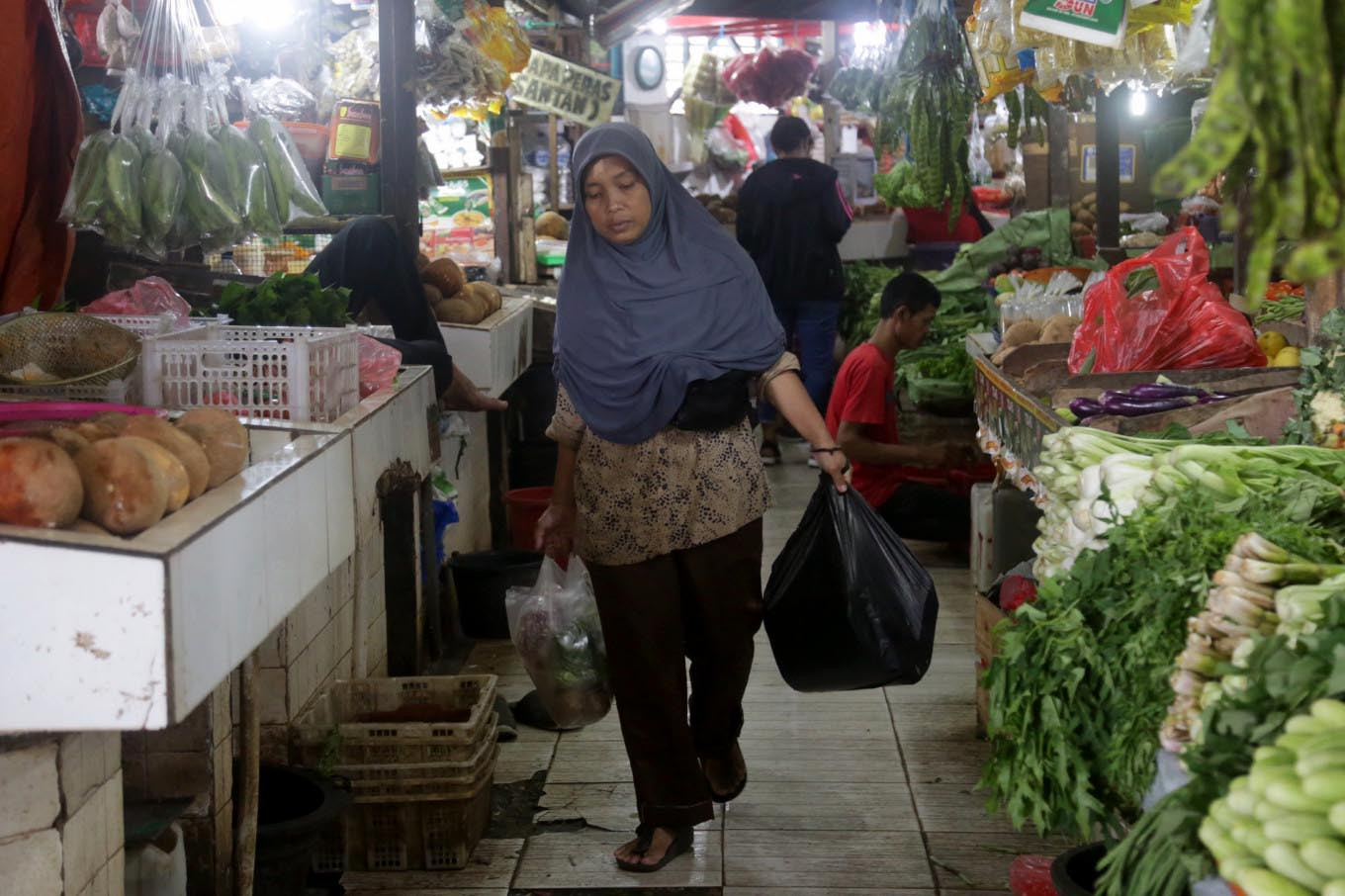
Cutting down waste: Jakarta's traditional markets to drop single-use plastic bags by July
by News DeskStarting July this year, all traditional markets in Jakarta operated by city-owned PD Pasar Jaya are to be free of single-use plastic bags.
Pasar Jaya development and business director Anugrah Esa said that all Pasar Jaya markets were required to stop providing single-use plastic bags to customers in accordance with Gubernatorial Regulation No. 142/2019 on ecofriendly bag usage.
"To all Pasar Jaya market management heads and managers, as of July 1, 2020 all markets should no longer provide single-use plastic bags and they should start campaigning [to reduce plastic use]," Anugrah said on Thursday.
The soon-to-be-enforced policy was one of Pasar Jaya’s efforts to reduce plastic waste in the capital, especially since traditional markets were also among Jakarta’s largest waste producers.
"Every day, traditional markets produce 600 tons of waste. If this movement starts in traditional markets we will significantly reduce Jakarta's waste," he said.
Jakarta Environmental Agency head Andono Warih said the administration, businesses and consumers must work together to reduce plastic bags, as stipulated in the gubernatorial regulation.
"It will be effective if we work together," Andono said.
Andono said traditional market managers must soon educate their vendors about the single-use plastic ban, as well as require them to provide their customers with environmentally friendly shopping bags to phase out plastic bags.
According to the World Bank, about 400,000 tons of plastic waste enter Indonesia’s waters each year, Indonesian Plastic Bags Diet Movement executive director Tiza Mafira said.
"The majority of it is single-use plastic bags," Tiza said, adding that plastic bags only made up 6 percent of total plastic production but they overwhelmingly polluted the environment because they were harder to collect and to recycle.
Tiza said the Jakarta administration had taken the logical step of banning single-use plastic bags.
Although 22 cities and regencies in the country have similar policies against plastic bags, Jakarta dared to target both supermarkets and traditional markets as the latter also produced significant amounts of plastic waste, Tiza added.